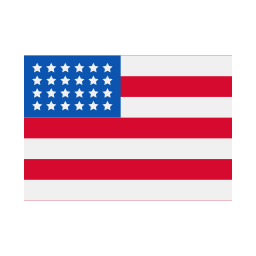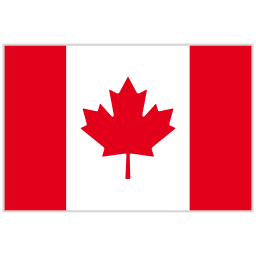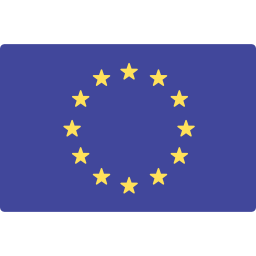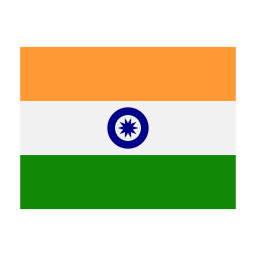SLOVENIA – GENERAL INFORMATION

GEOGRAPHY
Located in central Europe, Slovenia connects Western Europe and the Mediterranean with the Balkans. It is bordered by Austria to the north, where the Julian Alps, the Kamnik-Savinja Alps, the Karavanke chain and the Pohorje Massif stretch across Slovenia’s northern region. Slovenia is bordered by Italy to the west and Croatia to the south, with a short 30 mile coastline along the Mediterranean that sits between Italy and Croatia at the southwest corner of the country. Slovenia’s longest border is with Croatia which covers the entire south and southeast. The northeast is bordered by Hungary. The majority of the landscape is hilly or mountainous with the exception of the flat landscape in the east and northeast bordering Croatia and Hungary. The Karst plateau is a limestone region, located between Ljubljana and the Italian border, full of underground rivers and caves.
HISTORY

For almost 1,000 years, Slovenia was governed by the Dukes of Carinthia. Slovenia became part of the Habsburg Empire from the 14th century until 1918, and although it had been ruled by foreign governments since the 9th century, Slovenia held on to its original Slavic language and culture. In 1918, following the end of World War I, Slovenia along with other southern Slav states created the Kingdom of Serbs, Croats and Slovenes. The kingdom was renamed the Kingdom of Yugoslavia and fell under the control of the Axis powers in World War II. The Kingdom of Yugoslavia rendered resistance to the Axis occupation and resistance groups under the leadership of Josip Broz Tito eventually brought a new version of communism to the new socialist Yugoslavia. After Tito’s death in 1980, the country began to unravel as ethnic nationalism between the various groups began to rise. In 1989, Slovenia began a succession from Yugoslavia, and by 1991, Slovenia declared its independence which lead to a 10 day war with Yugoslavia. Following its independence, Slovenia has made progress in forming democratic institutions and strengthened her closer association with the West with its new membership in the EU and NATO.
THE PEOPLE
Slovenes are the majority of the population. Hungarians and Italians are a minority group but are given indigenous status which gives them some power in politics. Serb, Croat and Bosniak make-up less than 5% of the population. Most Slovenes are Roman Catholic, but there are some minority religions including Protestants, Orthodox Christians, Muslims and Jews.
SOCIAL CONVENTIONS
Dress codes are westernized and informal. Smoking is prohibited in most public areas.
LANGUAGES
Slovene is the official language. A small minority speak Serbo-Croatian. Most citizens speak English as a second language.
GOVERNMENT
Parliamentary Republic. The system is democratic with regular elections and a free press. Power is split between a president and a prime minister.
TIME ZONE
UTC + 1 – (observes summer daylight savings time)
ELECTRICITY
230V supply voltage and 50Hz
Plugs and Sockets Type C & F
CLIMATE
Slovenia experiences a continental climate. The coast gets the Mediterranean climate with winters dropping down to the 30’s and summers reaching the high 70’s to low 80’s. In the more mountainous region of the country in the northwest, the weather is much cooler. Winters drop down to the low 30’s with snowfall while summers are moderately warm.
Clothes to Wear:
Winter months will require medium to heavy clothing. If you’re in the northwest region, you will need clothing for the snow environment. Lighter clothing can be worn in the summer, but be prepared for rainfall. Pack some smart layered clothing. Even in summer it can get cool. We usually don’t recommend traveling long distances with an umbrella. If you feel you need an umbrella, rather purchase one overseas.
LOGISTICAL
Entry & Exit Requirements:
Slovenia is a party to the Schengen Agreement. Visit the Slovenia website for the most current visa information. For US and Canadian residents who are not US or Canadian citizens (green-card-holders) with foreign passports please consult https://www.schengenvisainfo.com/ for correct European Union visa rules.
Traveling Through Europe: If you are planning to visit or travel through European countries, you should be familiar with the requirements of the Schengen Agreement.
- Your passport should be valid for at least three months beyond the period of stay if you plan on transiting a Schengen country.
- You will need sufficient proof of funds and a return plane ticket.
- For study, employment, or any stay longer than 90 days within a 180-day period, you must apply for a long-term (D) visa or temporary residency prior to entering Slovenia.
- Remaining in Slovenia or the Schengen Area beyond 90 days without a residency permit may incur large fines, deportation, criminal charges, and/or travel restrictions.
- Foreigners must carry official identification at all times (U.S. passport or a Slovenian residence card ).
- You must obtain a stamp in your passport upon entering the Schengen Area and show it when departing.
- Non-EU citizens staying longer than three days must register with the police within 72 hours of arrival. Hotels and apartments or houses rented through a company will register you. In all other cases, you must register yourself at a police station. Failure to register can result in hefty fines.
HIV/AIDS Restrictions: The U.S. Department of State is unaware of any HIV/AIDS entry restrictions for visitors to or foreign residents of Slovenia.
Embassy Locations:
U.S. Embassy Ljubljana
Prešernova 31
1000 Ljubljana
Slovenia
Telephone: +(386) (1) 200-5500
Emergency After-Hours Telephone:
+(386) (1) 200-5500
Email: LjubljanaACS@state.gov
Canada Embasy Ljubljana
Linhartova cesta 49a.
1000 Ljubljana
Slovenia
Telephone: 00 386 1 252 44 44
Fax: 00 386 1 252 33 33
E-mail: Ljubljana@international.gc.ca
Health:
For emergency services in Slovenia dial 112
Adequate medical care is readily available. Ambulance services are widely available. When contacting an ambulance, if you do not speak Slovenian, you may need to find a Slovenian speaker who can explain your location. There is a list of English-speaking medical providers and 24-hour pharmacies on the U.S. Embassy’s website. You may need a prescription to get some medications which are purchased over-the-counter in the United States.
We do not pay medical bills. Be aware that U.S. Medicare/Medicaid does not apply overseas. Most hospitals and doctors overseas do not accept U.S. health insurance.
Medical Insurance: Make sure your health insurance plan provides coverage overseas. Most care providers overseas only accept cash payments.
- We strongly recommend supplemental insurance to cover medical evacuation.
- Always carry your prescription medication in original packaging, along with your doctor’s prescription. Check with the Embassy of Slovenia to ensure the medication is legal in Slovenia.
Vaccinations: Be up-to-date on all vaccinations recommended by the U.S. Centers for Disease Control and Prevention. Clinics for preventive vaccinations can provide more information.
Health facilities in general:
- Although most government-run institutions in Slovenia provide care at little or no cost to Slovenian nationals, foreign nationals, including American citizens, are expected to pay the full cost directly. You may later seek reimbursement from your health insurance provider. Private clinics will require payment up front.
- While many medical providers in Slovenia speak English, that may not be the case for all medical staff.
Pharmaceuticals:
- U.S. Customs and Border Protection and the Food and Drug Administration are responsible for rules governing the transport of medication back to the United States. Medication purchased abroad must meet their requirements to be legally brought back into the United States. Medication should be for personal use and must be approved for usage in the United States. Please visit the U.S. Customs and Border Protection and the Food and Drug Administration websites for more information.
Information on vaccinations and other health precautions, such as safe food and water precautions and insect bite protection, may be obtained from the Centers for Disease Control and Prevention’s (CDC) hotline for international travelers at 1-800-CDC-INFO (1-800-232-4636) or via the CDC website at http://wwwnc.cdc.gov/travel. For information about outbreaks of infectious diseases abroad, consult the infectious diseases section of the World Health Organization (WHO) website at http://www.who.int/topics/infectious_ diseases/en/. The WHO website also contains additional health information for travelers, including detailed country-specific health information.
BANKS & CURRENCY
Currency is in Euros (€). Banking hours are Monday – Friday, 8:00am – 5:00pm.
COMMUNICATION
Country code: 386
Internet country code: .si
Cell Phone Usage:
Please contact your cell phone provider to determine whether your contract includes coverage in the country you are visiting. Depending on your contract you may have to add international services and/or country specific services.
ENTERTAINMENT
Food & Drink:
In the Karst region, Karst delicacies follow a tradition of meat drying including Karst prosciutto, pancetta and Karst zasinek (dried shoulder of pork). These meats are made in many stews and mixed with vegetables. By the Mediterranean coast, fish, calamari and mussels are mixed in various dishes including home-made pasta and fusi. In the central region around Ljubljana, cosmopolitan fusion leads to dishes including the Ljubljana Crepes, the Ljubljana Cake, struklji (rolled dumplings) and pogaca breads. The Ljubljana Marketplace is a great place to get a taste of this region. The most popular desert in Slovenia is Prekmurje gibanica, from the eastern region. This desert using two types of dough, four different fillings and two types of icing is unforgettable.
Nightlife:
Most entertainment will be found in larger towns in cinemas and nightclubs. Smaller towns may have a local bar. The largest entertainment area in Slovenia is in Ljubljana, the cultural capital. There is a large student population in this area so nightclubs and bars are popular. There is also an opera house in this area that showcases symphonies on a regular basis. Other areas that provide nightlife are Maribor, Slovenia’s second largest city which also has a university, and along the Mediterranean coast in the resort of Portoroz.
Shopping:
Slovenian souvenirs including fashion designs can be found in most small boutique shops around the country. The city center of Ljubljana features small boutique shops and large department stores. On the weekends, street fairs feature various works from artists, hand-crafts and unique items at the antique flea market. Do what the locals do and finish your shopping, or a quick break from shopping, at one of the local cafés for coffee and refreshments.
BAGGAGE
Baggage rules for international and domestic air travel have changed much in recent years, differ from carrier to carrier and these days even may cover your on-board bags. Checking luggage may cost a separate fee or may be free depending on your personal status with the carrier. We therefore encourage you to read your ticket’s small print and/or contact your carrier for exact rules.
TIPPING
Most restaurants and bars already include a 10% service charge in the bill. It is customary to leave a bit extra for good service. When the service charge is not included in the bill, 10-15% is the general rule. Tips are not expected by taxi drivers, although most people tell the driver to keep the change. Airport and hotel porters should receive the equivalent of US$ 1.00 per bag.
LAUNDRY
Most hotels will arrange affordable laundry services for guests.
PHOTOS & VIDEOS
In some countries you must refrain from photographing sites such as Military bases and industrial installations. Also be aware of cultural sensitivities when taking pictures of or near churches and other religious sites. It is always courteous to ask for permission before taking photographs of people.
USE OF DRONES
The use of drones is being legislated by many countries. In some cases, drones are already forbidden, and their unauthorized use may carry severe penalties. If you plan to travel with a drone, please contact the embassy or consulate of the country you wish to visit.




